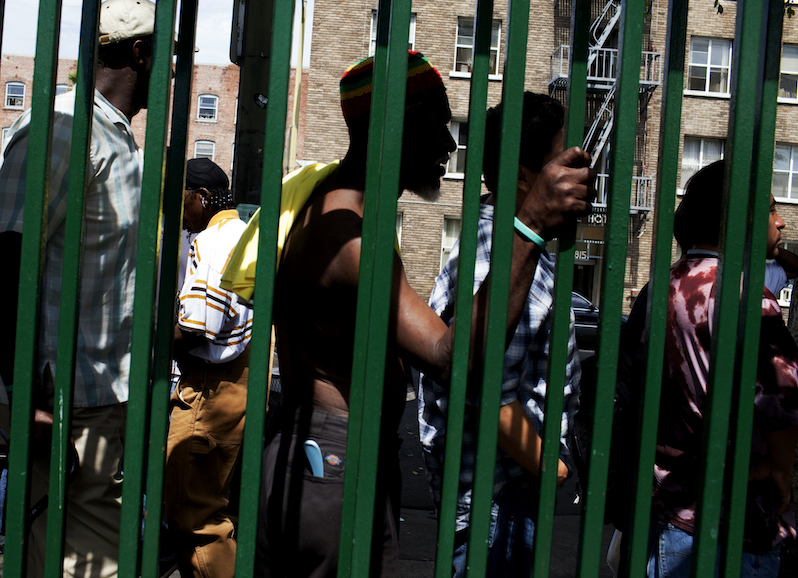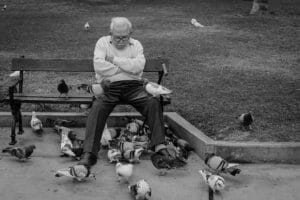Lock Up the Men, Evict the Women and Children
Part of the daily reality of poverty in America, evictions—along with mass incarceration—are the mechanisms used to destroy communities and profit from the misery of the poor. People wait in line for a free lunch outside Gladys Park in Los Angeles, a neighborhood with the nation's densest concentration of homeless people. (Philip Scott Andrews / AP)
1
2
3
People wait in line for a free lunch outside Gladys Park in Los Angeles, a neighborhood with the nation's densest concentration of homeless people. (Philip Scott Andrews / AP)
1
2
3
Arleen’s children did not always have a home. They did not always have food. Arleen was not always able to offer them stability; stability cost too much. She was not always able to protect them from dangerous streets; those streets were her streets. Arleen sacrificed for her boys, fed them as best she could, clothed them with what she had. But when they wanted more than she could give them, she had ways, some subtle, others not, of telling them they didn’t deserve it. When Jori wanted something most teenagers want, new shoes or a hair product, she would tell him he was selfish, or just bad. When Jafaris cried, Arleen sometimes yelled, ‘Damn, you hardheaded. Dry yo’ face up!’ or ‘Stop it, Jafaris before I beat yo’ ass! I’m tired of your bitch ass.’ Sometimes, when he was hungry, Arleen would say, “Don’t be getting in the kitchen because I know you not hungry’; or would tell him to stay out of the barren cupboards because he was getting too fat. You could only say ‘I’m sorry, I can’t’ so many times before you began to feel worthless, edging closer to a breaking point. So you protected yourself, in a reflexive way, by finding ways to say ‘No, I won’t.’ I cannot help you. So, I will find you unworthy of help.There are generations being sacrificed to emotional and cognitive dysfunction because of poverty. They lack a basic education. They are rendered numb by trauma. They are crushed as human beings. The rage Jori exhibited when his cat was killed grows and blossoms into a terrifying violence. I see it among my students in the prison. As adults, those raised like Jori explode with an inchoate fury at the slightest provocation, often something banal or trivial. If a gun is available—and in America, guns are almost always available—they shoot. If they are caught, they spend the decades locked in a cage, where there are no more opportunities for education, vocational training, counseling or redemption than in their blighted slums. There are numerous corporations and individuals that make money off this human sacrifice inside and outside prison walls. They have a vested interest in keeping the system intact. These moneyed interests use their power and their lobbyists to prevent rational and humane reform. Desmond captures the true face of corporate America. It is ugly and cruel. Your support matters…
Independent journalism is under threat and overshadowed by heavily funded mainstream media.
You can help level the playing field. Become a member.
Your tax-deductible contribution keeps us digging beneath the headlines to give you thought-provoking, investigative reporting and analysis that unearths what's really happening- without compromise.
Give today to support our courageous, independent journalists.







You need to be a supporter to comment.
There are currently no responses to this article.
Be the first to respond.